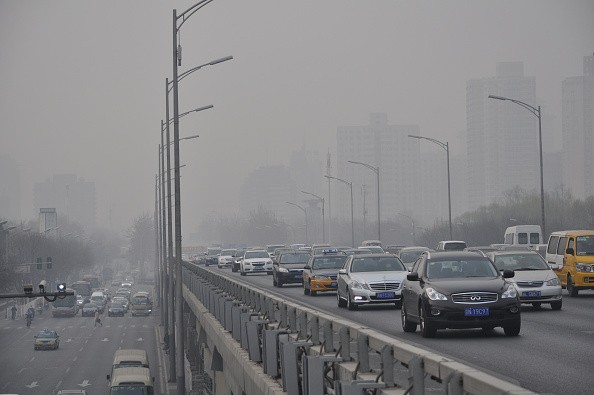As the smog problem remains unresolved, the citizens of Beijing are now thinking of moving to smaller cities and the countryside. Academics say that the exodus will cause irreparable harm to the country in the long run.
"I have been living in Beijing for 15 years. I am very in love and grateful for the city," said Pan Pingzi, a citizen who works in the media industry. He is planning to leave the city 15 days before the Spring Festival.
"If it weren't for the smog, I would have lived in Beijing for the rest of my life. But now, I must leave, because for me clean air is a basic need in order to survive."
Pan is only one of many who are planning to leave the 'capital of smog' if the problem continues to worsen.
A few days ago, Beijing Mayor Cai Qi vowed to cut the concentration of air pollutants by 18 percent this year--the most ambitious annual target that the city has ever set.
But the target is still more than double the acceptable standard set by the World Health Organization for PM2.5 which is at 20-25 micrograms per cubic meter.
But the smog problem came back to haunt the city, with the air quality index reading remaining above 150 Monday morning.
Meanwhile, the provinces of Hebei and Shanxi have many cities that are now reaching 'hazardous' pollution levels which may cause serious health problems.
Dim Future
While serious health respiratory problems like cancer are yet to be linked to it, academics say that the smog will also cause social and economic problems for China.
Peking University economics professor Wang Dingding believes that if the smog problem remains unresolved, one of the biggest problems the city will possibly face is the loss of people.
"It will also cause more high-income groups or low-income groups who are younger with a high education background to emigrate overseas if the living conditions in China continue to get worse," he said.
Wang added that the smog-related immigration is very much like war-cause immigration because people no longer feel safe in their country.
The exodus will cause a loss of brainpower and talent. This will be long-term, and the economic costs cannot be estimated.
With these complex problems, it is time for the local and national governments to deal with the smog problem seriously.



























